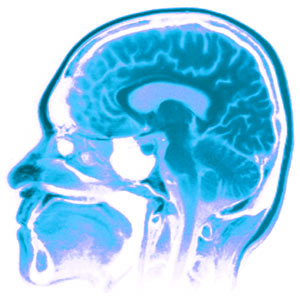Short-term treatment with estrogen increases the mass of gray cells in the brain in menopausal women, a period when the brain "works" much harder to focus on simple memory tasks due to the lack of estrogen

Short-term treatment with estrogen increases the mass of gray cells in the brain in menopausal women, a period when the brain "works" much harder to focus on simple memory tasks due to the lack of estrogen. This is what researchers from Vanderbilt University and the University of Vermont reported at the annual conference of the Society for Neuroscience, held in Washington, USA.
In a study that examined the value and effect of hormone replacement therapy, which has been controversial for a decade, 24 healthy postmenopausal women participated. 12 of them were treated with a standard daily dose of estrogen for 3 months and the remaining 12 took a placebo drug.
After the treatment, the women underwent an MRI examination and in it, the researchers found that the hormonal treatment had a significant effect on the structure of the brain and on increasing the number of gray cells in the area of the cortex (brain cortex), which is responsible for attention and focus, decision-making and the memory center.
"We saw significant differences in gray matter density," said Paul Newhouse, director of the Center for Cognitive Medicine at Vanderbilt University, who reported the results of the research group. According to the researchers, the proven change in the structure of the brain is proof that women should take short-term estrogen treatment, in order to prevent the mental deterioration that characterizes the menopause period.
Prof. Berry Kaplan, chairman of the Israeli Menopause Association: "Of course, more studies are needed on larger groups of women, but this is a breakthrough in understanding part of the effect of the hormonal deficiency during menopause on cognitive function and the benefit that appears following hormonal treatment, even in the short term."

5 תגובות
Definitely a very interesting study and I'm glad that the menopause is a subject of research because as someone who is at this age I would be very happy to know what is right to take and what is not. I personally try not to take hormones, but I do use alternative therapy with the help of natural nutritional supplements. I personally use Teva's nutritional supplement for menopause, Femarel, and it actually helps a lot
And it should be mentioned that estrogen is also present in the brains of men and is responsible for the masculinity of the newborn's brain.
To be an investigator, you must be a liar and a liar. Otherwise we will lie and fake you.
When it says "the gray cells" does it mean the body of the neurons? The dendrites and the axon form the same part of it?
Is each such "gray cell" actually a single neuron?